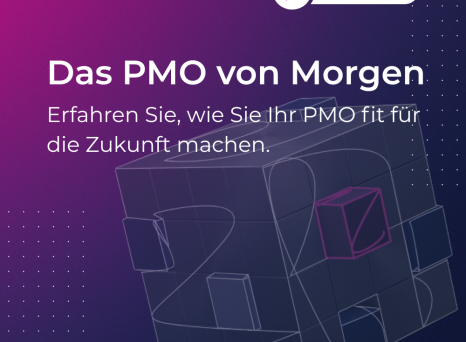Matt Light, Vice President und PPM-Experte bei Planisware, erklärt, warum die Entwicklung von Expertise in den Bereichen Software- und Service-Vendor-Management, der ausgeglichene Einsatz von agilen Methoden und klassischen Stage-Gate-Projektmanagementansätzen sowie die Umstellung auf ein Enterprise Portfolio Management Office (EPPM) heutzutage ebenfalls zu den zentralen strategischen Herausforderungen für IT-PMOs gehören.
[tab title="Click for Full Transcript"]
Challenge #1: Developing expertise in IT vendor management (0:05 to 02:20)
Perhaps, I'll start with one that you don't hear as much about, but in which, I think, PMOs are involved, and that's what I'll call the "Project Supply Chain", if you will.
Maybe, the paradigm has shifted, and maybe there's been a tectonic earthquake in some organizations from one where our internal IT organization would largely deliver the necessary projects, as well as ongoing support of the IT infrastructure, with some help from an external service provider. Every now and then, we'd hire out a project to a contractor: it's a big project, and we didn't have the capacity, or something like that.
More and more, I think PMOs find themselves in the position of vendor management and procurement management, where they're managing networks of subcontractors underneath a contractor and trying to blend their internal staff, who may be less and less project-oriented and more just kind of keeping the lights on.
So, what's the right balance between that? Are internal project managers working with the service provider's project managers? There's so many issues that come into play.
We might have a vendor management or a procurement management office already in place, but they don't have the expertise to deal with IT project contracts. They really can't evaluate them, they can't monitor and control them, and ride herd on them, as we say in the Old West.
So, this is a big issue that doesn't get as much attention, I think, as it should, 'cause a lot of PMOs are not good at it because it's kind of new on their radar, and they don't have that vendor management skill set, so perhaps working on the collaboration with the vendor management or procurement people, working on building up what they can do, and working on recognizing that this issue is a growing one. It's not going away. It's kind of the newer paradigm.
Challenge #2: Learning to balance Agile and classic phase-gated Project Management (02:21 to 3:43)
Of course, you've got to mention Agile, but not just Agile. If you haven't seen sparks fly between Agile practitioners and advocates, and traditional project managers and PMOs, then you haven't been paying attention. Either that, or you're late to Agile.
PMOs have to become conversant with and indeed expert at Agile project management and balancing Agile projects and methods with what sometimes are the better fit. More traditionally phase-gated projects are often the fit.
If you're not exploring into completely unknown territory, if a project will yield to analysis and you can come up with a good reliable schedule, then why wouldn't you do that? Why go through a bunch of iterations where you don't really know what's coming next, and what resources you'll need, and that sort of thing?
So, different methods will fit different projects best, and so there's going to be, I think, a hybrid middle. There will be the pure Agile innovation-driven types of projects, and then there will be some more traditionally phase-gated types of projects, and balancing those and winning credibility instead of enmity from the Agile practitioners will be an important challenge for the PMO.
Challenge #3: Making the transition to Enterprise Portfolio Management Office (EPMO – 3:44 to 5:08)
Perhaps, most exciting for some PMOs is the switch, the evolution or transformation of an IT Project Management Office.
Often, with some success, people start to turn to that IT PMO to do more, and they're often pushed to evolve into an Enterprise Portfolio Management Office.
And, there's some real challenges in making that transition. If you focus too much on the new EPMO responsibilities, then you drop the ball with what you were successful at previously. If you don't try to develop and acquire the right skills, and add the right staff to become effective as an Enterprise Portfolio Management Office, then you will disappoint that expectation that you can grow your value proposition from just the IT projects to the whole enterprise portfolio, the support for strategic execution.
And, I think that that is an important challenge for successful IT PMOs. Be careful about being successful because then they want you to do more. There's the old saying, "If you want something done ask a busy person." And, I think many successful IT PMOs are that busy organization.
[/tab]


